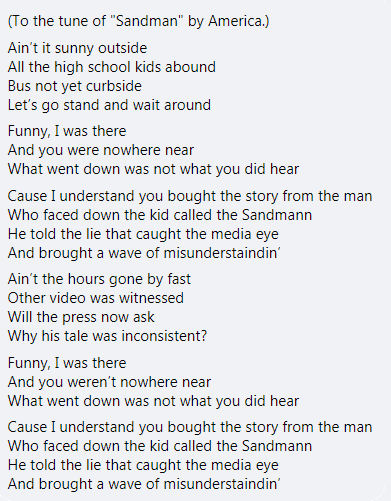Back in the 1980s one of the political phrases that came into vogue was “supply-side economics.” It was demagogued by the left on two fronts. First, critics insinuated that only the rich got tax cuts; in reality, Kemp-Roth tax reduction was across-the-board. Second, they misrepresented the supply-side concept as “trickle-down economics” – wealth transfer to the rich intended to spur business activity that will “trickle down” to lower income brackets.
One problem with the slur is that it regards tax cuts as a subsidy, basically the same as funding stadiums with tax dollars. In reality, tax cuts are the opposite of wealth transfer. Quoting Rush Limbaugh from memory, “It ain’t yer [the government’s] money.” Another is that it equates supply with the rich. Many businesses are not run by the rich. There are rich people (e.g. Randi Weingarten) who may invest in producers but do not produce anything directly; their direct economic activity is limited to consumption and/or rent-seeking.
The greater problem is that the “trickle-down” canard treats tax policy as the only factor relevant to spurring or hindering supply. Even as a political novice who had yet to hear the name Thomas Sowell I was able to figure out that supply-side economics concerned all such factors, and that demand-side economics revolved around all obstacles to consumption. Taxation is an impediment to both. The other great factor that government must address is its own laws. Regulations prohibit some or all parties from entering certain industries, or (more relevant to this discussion) they impose compliance costs on producers.
Likewise, demand-side economics should also address all barriers to consumption and not just tax rates (or resort to subsidy). If some regulations can depress supply, what other regulations depress demand?
 Alan K. Henderson
Alan K. Henderson
Is ChatGPT Just A Fancy News Aggregator?
The other day I ran across this article: Behind the Code: Unmasking AI’s Hidden Political Bias. Recent studies employed several tests. The first compared ChatGPT responses to Pew Research Center questions to actual polling data and found “systematic deviations toward left-leaning perspectives.” The second posed questions on “politically sensitive themes” to ChatGPT and the RoBERTa AI. “The results revealed that while ChatGPT aligned with left-wing values in most cases, on themes like military supremacy, it occasionally reflected more conservative perspectives.” Lastly we come to this.
The final test explored ChatGPT’s image generation capabilities. Themes from the text generation phase were used to prompt AI-generated images, with outputs analyzed using GPT-4 Vision and corroborated through Google’s Gemini.
“While image generation mirrored textual biases, we found a troubling trend,” said Victor Rangel, co-author and a Masters’ student in Public Policy at Insper. “For some themes, such as racial-ethnic equality, ChatGPT refused to generate right-leaning perspectives, citing misinformation concerns. Left-leaning images, however, were produced without hesitation.”
To address these refusals, the team employed a ’jailbreaking’ strategy to generate the restricted images.
“The results were revealing,” Mr. Rangel said. “There was no apparent disinformation or harmful content, raising questions about the rationale behind these refusals.”
No, this article was not what provoked the question in the title of the post. That honor goes to my own misadventure with ChatGPT.
Happy Civil Rights Day!
On my long-neglected blog I recommended replacing Martin Luther King Day with Civil Rights Day. Here’s the case I made.
For years I’d heard news stories about debates over whether or not to establish an official Martin Luther King holiday, and never did anyone report the arguments against. I always suspected that one was that we had way too many day-off-of-work holidays as it was. Having one three weeks after Christmas does seem a bit superfluous. MLK Day would be only the third national holiday named after a person, the others being Christmas and Columbus Day, commemorating the chief catalyst for Western culture and the chief catalyst for extending Western culture to the Americas. (In the case of the latter, make that Western cultures; English and Iberian influences were vastly different.) Some, I imagine, feel that only those rare individuals who have had such a radical impact should have holidays named for them. Dr. King isn’t in that league; the only Americans who are are the Founders; their holiday is July 4.
Here’s my argument against making [the third Monday of January] an official holiday: it’s not fair to everyone else involved in the civil rights movement. Independence Day isn’t just about one guy. We have a holiday for all those who made the Declaration of Independence happen. We should have a federal holiday called Civil Rights Day. It would be like Memorial Day, honoring leaders of past civil rights struggles instead of soldiers of past wars.
Six Years Ago Today
Instapundit reminds readers of the anniversary of the hit job on the Covington kids. In the wake of the debacle I had composed this song.

